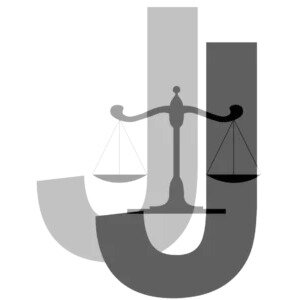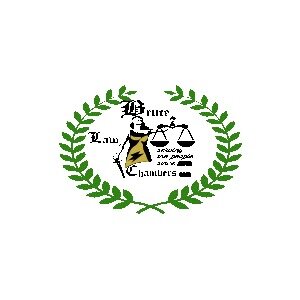Best State, Local, and Municipal Law Lawyers in Saint Vincent and the Grenadines
Share your needs with us, get contacted by law firms.
Free. Takes 2 min.
Or refine your search by selecting a city:
List of the best lawyers in Saint Vincent and the Grenadines
About State, Local, and Municipal Law in Saint Vincent and the Grenadines
State, Local, and Municipal Law in Saint Vincent and the Grenadines governs interactions and regulations at different governmental levels within the country. These laws cover a wide range of issues, including zoning regulations, property taxes, public ordinances, municipal elections, local government structure, and other civic matters. They are essential for maintaining order and ensuring that the needs of local communities are met within the broader framework of national legislation.
Why You May Need a Lawyer
There are several scenarios in which individuals or businesses may require legal assistance concerning State, Local, and Municipal Law in Saint Vincent and the Grenadines:
- Land Use and Zoning Disputes: If you are facing issues related to property development or land use regulations, consulting a lawyer can help you navigate these complex laws.
- Property Tax Assessments: Disputes over property taxes may require legal intervention to appeal unfair assessments.
- Local Ordinance Violations: If you are cited for violating local ordinances, a lawyer can help represent you or negotiate penalties.
- Municipal Contracts: Legal guidance can be crucial when dealing with contracts involving local government bodies.
- Licensing and Permits: Navigating the bureaucracy involved in obtaining the necessary licenses or permits for businesses often requires legal expertise.
- Public Access Issues: Problems related to accessibility of public spaces or services may necessitate legal action.
Local Laws Overview
In Saint Vincent and the Grenadines, local laws provide structure and governance to municipalities and parishes. Key aspects include:
- Local Government Structure: The island is divided into several parishes, each with its local governing body responsible for overseeing public services and community needs.
- Zoning Regulations: These laws determine how land within certain areas can be used, affecting residential, commercial, and industrial developments.
- Public Health and Safety: Local laws address issues such as waste management, building codes, and public health mandates to ensure community well-being.
- Environmental Protection: Municipalities enforce regulations aimed at preserving natural resources and minimizing environmental impacts.
- Taxation and Revenue Collection: These laws cover the collection of property taxes, fees, and other local government revenues.
Frequently Asked Questions
1. What is the role of local government in Saint Vincent and the Grenadines?
Local governments are responsible for providing basic services, enforcing local ordinances, managing municipal resources, and representing community interests.
2. How are zoning laws enforced?
Zoning laws are enforced by local authorities who oversee land development and construction projects to ensure compliance with regulations.
3. What should I do if I have a dispute over property taxes?
If you believe your property tax assessment is incorrect, you can appeal the assessment by working with an attorney experienced in local tax laws.
4. How can I obtain a business license in my municipality?
You must apply through your local municipal office and meet specific criteria and requirements, which may vary depending on the nature of the business.
5. What are the penalties for violating local ordinances?
Penalties vary depending on the nature of the violation and can include fines, legal action, or required compliance measures.
6. Can I change the zoning designation of my property?
Changing a zoning designation requires a formal application and approval from local zoning boards or city councils, which may involve public hearings.
7. How do local laws address environmental issues?
Local laws include guidelines and restrictions aimed at minimizing pollution and preserving natural habitats to ensure sustainable development.
8. Are there specific laws for municipal elections?
Yes, local laws outline the procedures for municipal elections, including candidate eligibility, voting processes, and election oversight.
9. What is required to comply with building codes?
Compliance with building codes involves adhering to standards for construction, safety, and property maintenance, which requires obtaining necessary permits and inspections.
10. Who is responsible for enforcing municipal laws?
Enforcement is typically the responsibility of local government officials, police forces, or specialized regulatory agencies, depending on the specific law or regulation.
Additional Resources
For further assistance, you can contact various resources and governmental bodies, including:
- Ministry of Local Government: Provides information and assistance related to municipal services and governance.
- Legal Aid and Advisory Authority: Offers legal advice and representation to those who qualify.
- Local Municipal Offices: Can provide guidance on specific local laws, permits, and services available in your area.
- Vincentian Bar Association: A professional association that can help you find a qualified lawyer specializing in State, Local, and Municipal Law.
Next Steps
If you need legal assistance in the area of State, Local, and Municipal Law, consider the following steps:
- Research and understand the specific issues or questions you have about local laws affecting your situation.
- Gather relevant documents, such as property records or permits, to provide to a legal professional.
- Contact a qualified attorney specializing in local government law for a consultation.
- Reach out to local government offices if you require direct information or services.
- Utilize available resources, such as local legal aid services, especially if cost is a concern.
Lawzana helps you find the best lawyers and law firms in Saint Vincent and the Grenadines through a curated and pre-screened list of qualified legal professionals. Our platform offers rankings and detailed profiles of attorneys and law firms, allowing you to compare based on practice areas, including State, Local, and Municipal Law, experience, and client feedback.
Each profile includes a description of the firm's areas of practice, client reviews, team members and partners, year of establishment, spoken languages, office locations, contact information, social media presence, and any published articles or resources. Most firms on our platform speak English and are experienced in both local and international legal matters.
Get a quote from top-rated law firms in Saint Vincent and the Grenadines — quickly, securely, and without unnecessary hassle.
Disclaimer:
The information provided on this page is for general informational purposes only and does not constitute legal advice. While we strive to ensure the accuracy and relevance of the content, legal information may change over time, and interpretations of the law can vary. You should always consult with a qualified legal professional for advice specific to your situation.
We disclaim all liability for actions taken or not taken based on the content of this page. If you believe any information is incorrect or outdated, please contact us, and we will review and update it where appropriate.
Browse state, local, and municipal law law firms by city in Saint Vincent and the Grenadines
Refine your search by selecting a city.










